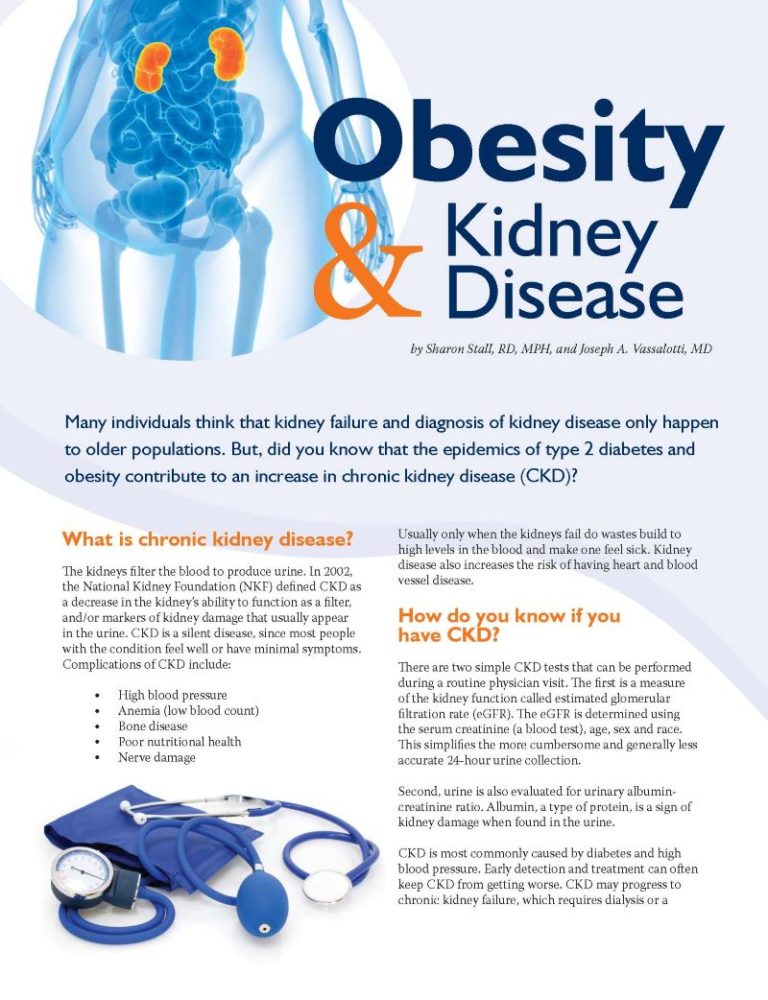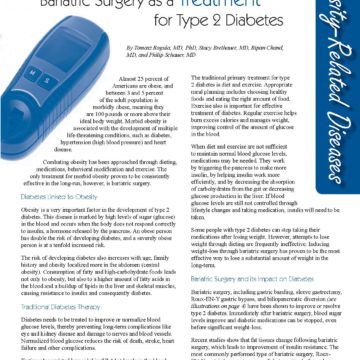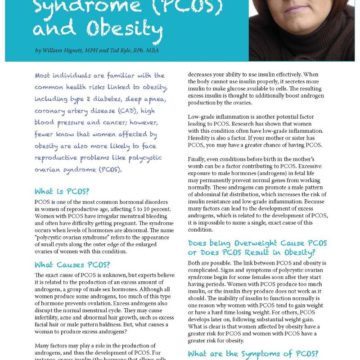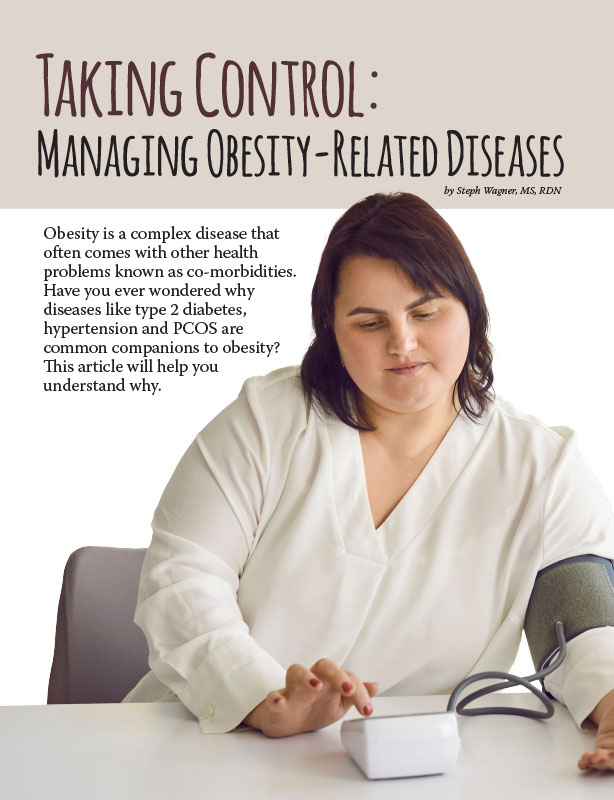Obesity & Kidney Disease


by Sharon Stall, RD, MPH, and Joseph A. Vassalotti, MD
Fall 2011
Many individuals think that kidney failure and diagnosis of kidney disease only happen to older populations. But, did you know that the epidemics of type 2 diabetes and obesity contribute to an increase in chronic kidney disease (CKD)?
What is chronic kidney disease?
The kidneys filter the blood to produce urine. In 2002, the National Kidney Foundation (NKF) defined CKD as a decrease in the kidney’s ability to function as a filter, and/or markers of kidney damage that usually appear in the urine. CKD is a silent disease, since most people with the condition feel well or have minimal symptoms. Complications of CKD include:
- High blood pressure
- Anemia (low blood count)
- Bone disease
- Poor nutritional health
- Nerve damage
Usually only when the kidneys fail do wastes build to high levels in the blood and make one feel sick. Kidney disease also increases the risk of having heart and blood vessel disease.
How do you know if you have CKD?
There are two simple CKD tests that can be performed during a routine physician visit. The first is a measure of the kidney function called estimated glomerular filtration rate (eGFR). The eGFR is determined using the serum creatinine (a blood test), age, sex and race. This simplifies the more cumbersome and generally less accurate 24-hour urine collection. Second, urine is also evaluated for urinary albumin-creatinine ratio. Albumin, a type of protein, is a sign of kidney damage when found in the urine.
CKD is most commonly caused by diabetes and high blood pressure. Early detection and treatment can often keep CKD from getting worse. CKD may progress to chronic kidney failure, which requires dialysis or a kidney transplant to maintain life. About 10 to 15 percent of the U.S. adult population has CKD. In other words, one in every nine American adults has CKD.
The epidemics of type 2 diabetes and obesity, as well as the aging of the population, are expected to contribute to an increase in CKD. When most people think of kidney disease, they think of dialysis or kidney transplantation. They do not understand that CKD is a spectrum and that the majority of people are unaware they have the condition.
Does obesity cause CKD?
As an indirect cause, obesity increases the risk of the major CKD risk factors – type 2 diabetes and high blood pressure. A direct cause would be when the kidneys have to work harder, filtering above the normal level, called hyperfiltration, to meet the metabolic demands of the increased body mass index (BMI) in individuals affected by obesity. This increase in normal function is also associated with a higher risk of developing CKD in the long-term.
About 10 to 15 percent of the U.S. adult population has CKD. In other words, one in every nine American adults has CKD.
Why is CKD awareness important for a person affected by obesity?
A person affected by obesity should consider the positive benefits of weight reduction, which include the prevention or risk reduction, and in some cases cure of chronic diseases like diabetes, high blood pressure, cardiovascular disease and CKD. Kidney screening tests, such as annual eGFR and urinary albumin-creatinine ratio, are suggested for all individuals with obesity, particularly those with diabetes or high blood pressure.
How is a person affected by obesity and CKD treated?
The integration of a healthy diet, physical activity and refreshing sleep is the focus of management of the patient with obesity and CKD. There are a number of cell phone applications that allow the individual to track daily dietary intake and physical activity to aid implementation. These recommendations may be helpful, whether or not you have CKD.
Diet

Extreme diets are not advised and probably not successful in the long-term. The challenge is to modify behavior in a way that will change the way a person lives, resulting in prolonged benefits. The United States Department of Agriculture’s new MyPlate strategy attempts to achieve that goal using an icon of a plate divided into sections to recommend a healthy meal plan (see image right). Using smaller portions, changing from large nine-inch plates to seven-inch plates, is an example of a behavioral technique that might be helpful. Another simple and clear recommendation is to substitute water for sugary drinks. Specific diet components worth highlighting include limiting protein and sodium. A general recommendation you can use with meals to moderate protein intake is three ounce portion sizes of meat, fish or chicken. This serving is visualized as the size of a deck of cards, which is consistent with the MyPlate concept. Popular high-protein diets for weight-loss, such as the Atkins Diet, should be avoided as the protein excess may increase the work load of the kidney and promote loss of kidney function.
Too much salt consumption increases blood pressure and contributes to CKD in predisposed individuals. The recent Institute of Medicine report recommends a sodium intake of 2,300 milligrams/day for healthy young people and 1,500 milligrams for all Americans more than 50-years-old, or for younger individuals with diabetes, high blood pressure or CKD.
Medical nutrition therapy with a dietitian is covered by Medicare for both diabetes and CKD but is unfortunately underutilized. A nutrition expert can help you read a food label to make healthy choices for your individualized diet plan.
Physical activity
Physical activity is crucial to successful healthy weight reduction. Exercise increases energy expenditure, promotes weight-loss and helps sustain a healthy weight. Inactivity is unhealthy and should be avoided.
The goal to work toward is two hours and 30 minutes of moderate intensity exercise a week. This is usually spread out throughout the week in doable moments of activity, 20-30 minutes at a time, or even shorter intervals. A simple step is to increase daily walking. Using a gradual approach to increase activity is most likely to be successful. You should partner with your healthcare practitioner to determine the best type of exercise program.
Sleep
Adequate sleep promotes maintenance of a healthy weight. Most individuals require about seven hours of sleep each night. Many studies suggest that irregular sleep patterns, eating before sleep and short sleep duration are all linked to obesity. Also, individuals with obesity are more likely to have sleep apnea, which may be found with high blood pressure and CKD. Symptoms of sleep apnea are daytime sleepiness, lack of feeling refreshed after sleep, loud snoring and periods of not breathing during sleep.
Pharmaceutical treatment of obesity in the context of CKD
It is best to try to avoid drug therapy and focus first on the previous interventions mentioned. Drug therapy may be used to augment the previously mentioned interventions and should only be used under the supervision of a treating clinician.
Surgical treatment of obesity in the context of CKD
Weight-loss surgery is used to treat severe obesity for individuals with a BMI greater than 40 or a BMI greater than 35 with diabetes or any other obesity-related condition. The substantial weight-loss often reported may result in improvements in blood sugar and blood pressure and a resolution of hypertension. Preliminary results suggest such surgery can improve the levels of albumin in the urine for patients with CKD.
Research is ongoing to assess the effects of this treatment in patients with CKD. Weight-loss surgery has an added benefit for the CKD patient affected by obesity, as it increases the chances to qualify for a kidney transplant, since obesity may limit access to kidney transplantation as a treatment for chronic kidney failure.
Conclusion
Healthy lifestyle and an environment promoting healthy eating and physical activity will help in the prevention and treatment of obesity. Moreover, healthy body weight will reduce the risk of major chronic diseases, diabetes, high blood pressure, CKD and cardiovascular disease. Increasing awareness of CKD among overweight patients and healthcare professionals alike will help spread the word that CKD is preventable, harmful and treatable.
About the Authors:
Sharon Stall, RD, MPH, is a registered dietitian and board certified specialist in renal nutrition. Her passion is professional and patient education to stop and delay progression of CKD. She is a doctoral student in health practice research at the School of Nursing, University of Rochester Medical Center.
Joseph A. Vassalotti, MD, is chief medical officer of the National Kidney Foundation. He also is an associate clinical professor of medicine in the division of nephrology at Mount Sinai School of Medicine in New York City.
References:
National Kidney Foundation : K/DOQI Clinical Practice Guidelines for Chronic Kidney Disease: Evaluation, Classification and Stratification. Am J Kidney Dis 39: S1 –S266, 2002, (suppl 1)
National Kidney Foundation : KDOQI Clinical Practice Guidelines and Clinical Practice Recommendations for Diabetes and Chronic Kidney Disease. Am J Kidney Dis 49: S95-107, 2007 suppl 2
Griffin KA, Kramer H, Bidani AK. Adeverse renal consequences of obesity. Am J Physiol Renal Physiol 294:F685-F696, 2008
Kramer, H, Tuttle KR, Leehey D et al: Obesity Management in Adults with CKD. Am J Kidney Dis 53:151-165,2009
U.S Department of Health and Human Service Dietary Guidelines for American 2010.
Websites
The National Kidney Disease Education Program (www.nkdep.nih.gov)
www.choosemyplate.gov
The National Kidney Foundation (www.kidney.org)
The DASH diet https://www.nhlbi.nih.gov/health/public/heart/hbp/dash/new_dash.pdf
by Steph Wagner, MS, RDN Spring 2024 Obesity is a complex disease that often comes with other…
Read Articleby Katherine H. Saunders, MD, DABOM Spring 2024 Menopause probably isn’t anyone’s idea of fun. While this…
Read Articleby Sarah Ro, MD; and Young Whang, MD, PhD Fall 2023 Mary, a postmenopausal woman with a…
Read Article








